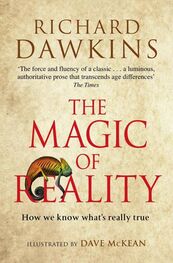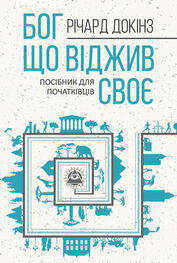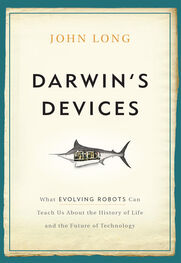The next major threshold I want to consider, because I suspect that it, too, is probably of more than local planetary significance, is the High-Speed Information-Processing Threshold. On our planet this Threshold 5 is achieved by a special class of cells called neurons, or nerve cells, and we might locally call it the Nervous System Threshold. However it may be achieved on a planet, it is important, because {157} now action can be taken on a timescale much faster than the one that genes, with their chemical levers of power, can achieve directly. Predators can leap at their dinner and prey can dodge for their lives, using muscular and nervous apparatus that acts and reacts at speeds hugely greater than the embryological origami speeds with which the genes put the apparatus together in the first place. Absolute speeds and reaction times may be very different on other planets. But on any planet an important threshold is crossed when the devices built by replicators start to have reaction times orders of magnitude faster than the embryological machinations of the replicators themselves. Whether the instruments will necessarily resemble the objects that we, on this planet, call neurons and muscle cells is less certain. But on those planets where something equivalent to the Nervous System Threshold is passed, important further consequences are likely to follow and the replication bomb will proceed on its outward journey.
Among these consequences may be large aggregations of data-handling units – “brains” – capable of processing complex patterns of data apprehended by “sense organs” and capable of storing records of them in “memory.” A more elaborate and mysterious consequence of crossing the neuron threshold is conscious awareness, and I shall call Threshold 6 the Consciousness Threshold. We don't know how often this has been achieved on our planet. Some philosophers believe that it is crucially bound up with language, which seems to have been achieved once only, by the bipedal ape species Homo sapiens. Whether or not consciousness requires language, let us anyway recognize the Language Threshold as a major one, {158} Threshold 7, which may or may not be crossed on a planet. The details of language, such as whether it is transmitted by sound or some other physical medium, must be relegated to local significance.
Language, from this point of view, is the networking system by which brains (as they are called on this planet) exchange information with sufficient intimacy to allow the development of a cooperative technology. Cooperative technology, beginning with the imitative development of stone tools and proceeding through the ages of metal-smelting, wheeled vehicles, steam power and now electronics, has many of the attributes of an explosion in its own right, and its initiation therefore deserves a title, the Cooperative Technology Threshold, or Threshold 8. Indeed, it is possible that human culture has fostered a genuinely new replication bomb, with a new kind of self-replicating entity – the meme, as I have called it in The Selfish Gene – proliferating and Darwinizing in a river of culture. There may be a meme bomb now taking off, in parallel to the gene bomb that earlier set up the brain/culture conditions that made the take-off possible. But that, again, is too big a subject for this chapter. I must return to the main theme of the planetary explosion and note that, once the stage of cooperative technology has been reached, it is quite likely that somewhere along the way the power to make an impact outside the home planet will be achieved. Threshold 9, the Radio Threshold, is passed, and it now becomes possible for external observers to notice that a star system has newly exploded as a replication bomb.
The first inkling external observers will get, as we have seen, is likely to be radio waves spilling outward as a {159} by-product of communications within the home planet. Later, the technological heirs of the replication bomb may themselves turn their deliberate attention outward to the stars. Our own halting steps in that direction have included the beaming out into space of messages specifically tailored for alien intelligences. How can you tailor messages for intelligences of whose nature you have no conception? Obviously it is difficult, and quite possibly our efforts have been misconceived.
Most attention has been given to persuading alien observers that we exist at all, rather than sending them messages with substantial content. This task is the same as that faced by my hypothetical Professor Crickson in chapter 1. He rendered the prime numbers into the DNA code, and a parallel policy using radio would be a sensible way to flag our presence to other worlds. Music might seem a better advertisement for our species, and even if the audience lacked ears they might appreciate it in their own way. The famous scientist and writer Lewis Thomas suggested that we broadcast Bach, all of Bach and nothing but Bach, although he feared it might be taken as boasting. But, equally, music might be mistaken, by a sufficiently alien mind, for the rhythmic emanations of a pulsar. Pulsars are stars that give off rhythmic pulses of radio waves at intervals of a few seconds or less. When they were first discovered, by a group of Cambridge radioastronomers in 1967, there was momentary excitement as people wondered whether the signals might be a message from space. But it was soon realized that a more parsimonious explanation was that a small star was rotating extremely fast and sweeping a beam of radio waves around like a lighthouse. To date, {160} no authenticated communications from outside our planet have ever been received.
After radio waves, the only further step we have imagined in the outward progress of our own explosion is physical space travel itself: Threshold 10, the Space Travel Threshold. Science-fiction writers have dreamed of the interstellar proliferation of daughter colonies of humans, or their robotic creations. These daughter colonies could be seen as seedings, or infections, of new pockets of self-replicating information – pockets that may subsequently themselves expand explosively outward again, in satellite replication bombs, broadcasting both genes and memes. If this vision is ever realized, it is perhaps not too irreverent to imagine some future Christopher Marlowe reverting to the imagery of the digital river: “See, see, where life's flood streams in the firmament!”
We have so far scarcely taken the first step outward. We have been to the moon but, magnificent as this achievement is, the moon, though no calabash, is so local as scarcely to count as traveling, from the point of view of the aliens with whom we might eventually communicate. We have sent a handful of unmanned capsules into deep space, on trajectories that have no visualizable ending. One of these, as a result of inspiration from the visionary American astronomer Carl Sagan, carries a message designed to be deciphered by any alien intelligence who might chance upon it. The message is adorned with a picture of the species that created it, the image of a naked man and woman.
This might seem to bring us full circle, to the ancestral myths with which we began. But this couple is not Adam and Eve, and the message engraved beneath their graceful {161} forms is an altogether more worthy testament to our life explosion than anything in Genesis. In what is designed to be a universally understandable iconic language, the plaque records its own genesis in the third planet of a star whose coordinates in the galaxy are precisely recorded. Our credentials are further established by some iconic representations of fundamental principles of chemistry and mathematics. If the capsule is ever picked up by intelligent beings, they will credit the civilization that produced it with something more than primitive tribal superstition. Across the gulf of space, they will know that there existed, long ago, another life explosion that culminated in a civilization that would have been worth talking to.
Читать дальше







